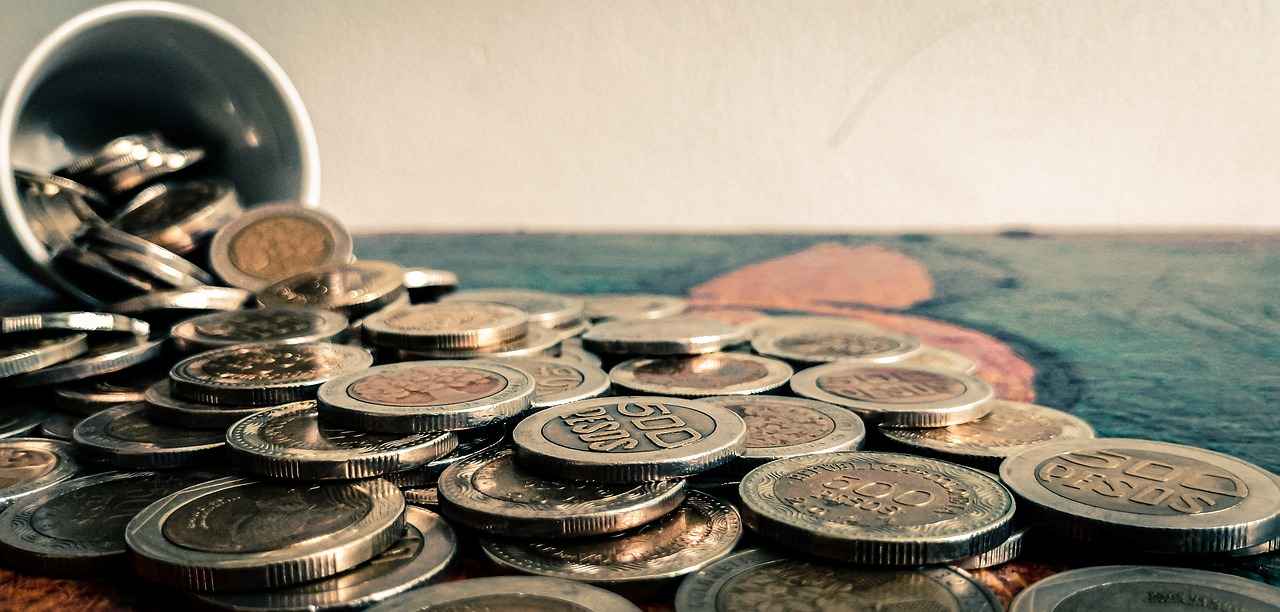Managing student loans can be a daunting task, especially as we approach 2025. This article delves into effective strategies for navigating student loans, focusing on repayment options, refinancing, and financial planning. By understanding these elements, borrowers can make informed decisions that align with their financial goals.
Understanding Student Loan Types
To effectively manage student loans, it’s essential to recognize the different types available. There are primarily two categories: federal loans and private loans. Federal loans often come with more flexible repayment options and protections, while private loans may offer lower interest rates but less flexibility. Familiarize yourself with the terms and conditions of each type to make informed choices.
Assessing Your Current Financial Situation
Before making any decisions, assess your financial landscape. Consider your income, expenses, and any existing debts. This assessment will help you create a realistic repayment plan that fits your budget.
Calculating Monthly Payments
Use online loan calculators to determine your monthly payments based on your income and expenses. This step is crucial for effective budgeting and ensuring you can meet your obligations.
Fixed vs. Variable Interest Rates
Understanding the difference between fixed and variable interest rates is vital. Fixed rates remain constant throughout the loan term, while variable rates can fluctuate. Choose the option that best aligns with your financial strategy.
Exploring Repayment Plans
Familiarize yourself with the various repayment plans available for federal student loans. Options include standard, graduated, and income-driven repayment plans. Each plan has unique benefits, so select one that suits your financial situation.
Refinancing Your Student Loans
Refinancing can be a beneficial strategy for some borrowers. It allows you to secure better rates and terms, potentially lowering your monthly payments. However, it’s crucial to understand the benefits and drawbacks before proceeding.
Utilizing Student Loan Forgiveness Programs
Explore available loan forgiveness programs, particularly for those in public service or specific professions. Understanding eligibility requirements and the application process can significantly alleviate your debt burden.
Creating a Long-Term Financial Plan
Developing a long-term financial plan that incorporates your student loans is essential for achieving financial stability. This plan should include budgeting for repayments and establishing an emergency fund to safeguard against unforeseen circumstances.
By following these strategies, borrowers can effectively manage their student loans in 2025 and beyond, paving the way for a brighter financial future.

Understanding Student Loan Types
Understanding the landscape of student loans is vital for any borrower looking to manage their debt effectively. In 2025, students and graduates face a variety of loan options, each with its own implications. The two primary categories are federal loans and private loans, and each type comes with distinct terms and conditions that can significantly impact your repayment journey.
Federal student loans are issued by the government and typically offer lower interest rates and flexible repayment options. They come in several forms, including:
- Direct Subsidized Loans: These are need-based loans where the government pays the interest while you are in school.
- Direct Unsubsidized Loans: Available to all students, these loans accrue interest while you are in school.
- Direct PLUS Loans: Designed for graduate students and parents of dependent undergraduate students, these loans require a credit check.
On the other hand, private student loans are offered by banks and other financial institutions. They often require a credit check and may come with variable interest rates that can fluctuate over time. Key characteristics include:
- Variable Interest Rates: These can change based on market conditions, potentially leading to higher payments over time.
- Less Flexible Repayment Options: Unlike federal loans, private loans may have stricter repayment terms and fewer options for deferment or forbearance.
Understanding these differences is crucial. Borrowers should carefully assess their financial situations and consider their long-term goals when choosing between federal and private loans. This knowledge not only aids in selecting the right loan type but also in planning an effective repayment strategy that aligns with your financial capabilities.
By familiarizing yourself with the nuances of each loan type, you empower yourself to make informed decisions that can lead to a healthier financial future.

Assessing Your Current Financial Situation
When it comes to managing student loans effectively, the first step is to assess your current financial situation. This assessment is not merely a formality; it is a crucial component in developing a realistic repayment strategy that aligns with your financial capabilities.
Begin by evaluating your income. Take into account all sources of income, including your salary, side gigs, and any passive income streams. Understanding your total income will provide a solid foundation for budgeting.
Next, consider your expenses. Create a detailed list of your monthly expenses, categorizing them into essential and non-essential items. Essential expenses include rent, utilities, groceries, and transportation, while non-essential expenses may encompass dining out, entertainment, and subscriptions. By having a clear picture of your spending habits, you can identify areas where you might cut back to allocate more funds towards loan repayments.
Additionally, take stock of your existing debt. This includes not only student loans but also credit card debt, car loans, and any other financial obligations. Understanding the total amount of debt you owe and the interest rates associated with each will help you prioritize your repayment strategy.
Once you have gathered this information, you can create a realistic repayment plan. Consider using a loan calculator to determine how much you can afford to pay each month towards your student loans. This will help you set achievable goals and avoid the pitfalls of overcommitting financially.
Lastly, remember that your financial situation may change over time. Regularly reassessing your finances will allow you to adjust your repayment plan as needed, ensuring that you remain on track to meet your financial goals while managing your student loans effectively.
Calculating Monthly Payments
When it comes to managing your student loans effectively, calculating your monthly payments is a crucial step in the budgeting process. By understanding how much you owe each month, you can make informed financial decisions that align with your overall financial goals.
To start, it is essential to gather all relevant financial data, including your total loan amount, interest rates, and the length of your loan term. With this information in hand, you can utilize loan calculators available online. These tools allow you to input your details and generate accurate estimates of your monthly payment obligations. This calculation will help you determine how much you can afford to pay based on your income and expenses.
| Loan Type | Interest Rate | Loan Amount | Monthly Payment |
|---|---|---|---|
| Federal Loan | 4.5% | $30,000 | $500 |
| Private Loan | 6.8% | $20,000 | $400 |
It’s also important to consider your financial situation holistically. Create a detailed budget that includes all your monthly expenses such as rent, utilities, groceries, and any other debts. This will provide a clearer picture of how much you can allocate towards your loans each month.
- Track Your Spending: Monitor your spending habits to identify areas where you can cut back.
- Set Financial Goals: Establish short-term and long-term financial goals to guide your budgeting efforts.
- Adjust as Necessary: Be prepared to revisit and adjust your budget as your financial situation changes.
By taking these steps, you can ensure that your monthly payments are manageable and fit within your overall financial strategy. Ultimately, effective budgeting and planning will empower you to take control of your student loans and pave the way for a more secure financial future.
Fixed vs. Variable Interest Rates
When navigating the world of student loans, understanding the nuances of fixed and variable interest rates is essential for making informed financial decisions. This knowledge serves as a foundation for selecting the most suitable repayment plan that aligns with your financial objectives.
A fixed interest rate remains constant throughout the life of the loan. This predictability allows borrowers to plan their budgets effectively since monthly payments will not fluctuate. Such stability can be particularly advantageous during periods of economic uncertainty when interest rates might rise. For many, locking in a fixed rate can provide peace of mind and a clear repayment strategy.
In contrast, a variable interest rate can change over time, typically in relation to market conditions or a specific index. While these rates often start lower than fixed rates, they carry the risk of increasing significantly, leading to higher monthly payments in the future. This variability can be appealing for borrowers who anticipate a decrease in rates or who plan to pay off their loans quickly, thus minimizing exposure to potential rate hikes.
| Feature | Fixed Interest Rate | Variable Interest Rate |
|---|---|---|
| Stability | High | Low |
| Initial Rate | Higher | Lower |
| Long-term Costs | Predictable | Uncertain |
| Ideal For | Long-term borrowers | Short-term borrowers |
Ultimately, the choice between fixed and variable interest rates should be guided by your financial situation and goals. If you prefer certainty and stability, a fixed rate might be your best option. However, if you are comfortable with some risk and are seeking lower initial payments, a variable rate could be more beneficial. Carefully evaluate your financial landscape and consider consulting with a financial advisor to determine the best path forward.
Loan Term Length Considerations
When considering student loans, one crucial factor that borrowers must take into account is the length of the loan term. The duration of your loan can have a profound impact on both your monthly payments and the total interest you will pay over the life of the loan. Understanding this relationship is essential for making informed financial decisions.
Generally, short-term loans offer lower interest rates and allow borrowers to pay off their debt more quickly. This can lead to significant savings on interest payments. However, the trade-off is that monthly payments will be higher, which may strain your budget. For those with a stable income and the ability to manage higher payments, a short-term loan can be an attractive option.
On the other hand, long-term loans typically result in lower monthly payments, making them more manageable for many borrowers. This can be especially beneficial for recent graduates who may be entering the job market with limited income. However, it’s important to note that while the monthly payments are lower, the total interest paid over the life of the loan can be significantly higher, potentially costing you thousands of dollars more in the long run.
To make the best choice for your financial situation, consider evaluating both options:
- Assess your budget: Determine how much you can afford to pay each month without compromising your essential living expenses.
- Consider your career trajectory: If you anticipate a substantial increase in income in the near future, a short-term loan might be more feasible.
- Calculate total costs: Use loan calculators to compare the total interest paid for both short-term and long-term loans.
Ultimately, the decision between short-term and long-term loans should align with your financial capabilities and long-term goals. By carefully weighing these factors, you can choose a loan term that best suits your circumstances and sets you on the path to financial success.
Exploring Repayment Plans
When it comes to managing student loans, understanding the various repayment plans available for federal student loans is essential. Each plan is designed to accommodate different financial situations, ensuring that borrowers can find a suitable option that aligns with their unique circumstances.
The first option is the Standard Repayment Plan. This plan features fixed monthly payments over a period of 10 years. It is ideal for borrowers who prefer predictability in their budgeting. The advantage of this plan is that it minimizes the amount of interest paid over the life of the loan, making it a cost-effective choice for those who can afford higher monthly payments.
Next, there is the Graduated Repayment Plan. This plan starts with lower payments that gradually increase every two years. It is designed for borrowers who anticipate their income will rise over time. While the initial payments may be more manageable, it’s important to note that this plan can result in higher overall interest costs due to the extended repayment period, which typically lasts up to 10 years.
For those experiencing financial hardship or who have fluctuating incomes, Income-Driven Repayment Plans offer a flexible solution. These plans calculate monthly payments based on income and family size, ensuring that payments remain affordable. There are several types of income-driven plans, including:
- Income-Based Repayment (IBR)
- Pay As You Earn (PAYE)
- Revised Pay As You Earn (REPAYE)
Each of these plans has specific eligibility requirements and benefits, such as potential loan forgiveness after 20 or 25 years of qualifying payments. Understanding the nuances of each plan is crucial for selecting the best option.
In conclusion, familiarizing yourself with these repayment plans is vital for effective student loan management. Evaluate your financial situation, consider your future income potential, and choose a plan that aligns with your goals to make your student loan repayment journey smoother.

Refinancing Your Student Loans
Refinancing your student loans can be a strategic financial decision for many borrowers. It involves replacing your existing loans with a new loan that typically offers a lower interest rate or better terms. This process can lead to significant savings over time, but it is essential to weigh both the advantages and potential drawbacks.
- Lower Interest Rates: One of the most compelling reasons to refinance is to secure a lower interest rate. A reduced rate can decrease your monthly payments and the total interest paid over the life of the loan.
- Improved Loan Terms: Refinancing can also allow you to adjust the loan term, potentially shortening the repayment period or extending it to lower monthly payments, depending on your financial situation.
- Consolidation: If you have multiple student loans, refinancing can consolidate them into a single loan, simplifying your repayment process.
- Loss of Federal Benefits: If you refinance federal student loans into a private loan, you may lose access to benefits such as income-driven repayment plans and loan forgiveness options.
- Fees and Costs: Some lenders may charge fees for refinancing, which can offset any savings you might gain from a lower interest rate.
- Credit Score Impact: The refinancing process typically involves a credit check, which could temporarily lower your credit score.
Timing can play a crucial role in the decision to refinance. Consider refinancing when:
- Interest Rates Drop: If market rates decrease significantly since you took out your loans, it may be an opportune moment to refinance.
- Your Credit Score Improves: An increase in your credit score can qualify you for better interest rates.
- Your Financial Situation Changes: A stable job and increased income can make refinancing a more viable option.
In summary, refinancing student loans can be a beneficial move for borrowers looking to save money or simplify their repayment process. However, it is crucial to evaluate your specific circumstances and consult with financial advisors or loan specialists to ensure that refinancing aligns with your long-term financial goals.
When to Refinance
Refinancing your student loans can be a strategic financial move, but timing is crucial. Understanding can lead to substantial savings and improved financial flexibility. Here are several key factors to consider:
- Interest Rates: Keep a close eye on current interest rates. If market rates drop significantly below your current rate, it may be an optimal time to refinance. Even a small reduction can lead to considerable savings over the life of your loan.
- Credit Score Changes: Your credit score plays a vital role in determining the interest rate you’ll receive when refinancing. If your credit score has improved since you first took out your loans, you may qualify for lower rates. Regularly monitor your credit report and consider refinancing when your score reaches a more favorable range.
- Job Stability: Job security is another important factor. If you have recently secured a stable job or received a promotion, you may be in a better position to manage new loan payments. Lenders often look favorably upon steady employment when assessing your application.
- Loan Terms: Evaluate your current loan terms. If you’re struggling with high monthly payments or unfavorable terms, refinancing can help you secure a more manageable repayment plan. Consider whether you want to shorten your loan term to pay off debt quicker or extend it for lower monthly payments.
- Financial Goals: Reflect on your long-term financial goals. If refinancing aligns with your objectives—such as saving for a home or investing in further education—it may be worth considering.
In conclusion, identifying the right time to refinance requires careful consideration of various factors. By staying informed about interest rates, monitoring your credit score, ensuring job stability, and aligning refinancing with your financial goals, you can make a well-informed decision that supports your financial future.
Choosing a Lender
When it comes to refinancing your student loans, choosing the right lender is a pivotal decision that can significantly impact your financial future. With numerous lenders available, it is essential to conduct thorough research to identify the one that best meets your needs.
Start by comparing interest rates across various lenders. A lower interest rate can lead to substantial savings over the life of your loan. Use online comparison tools to easily evaluate rates from multiple lenders side by side. Remember, even a small difference in interest rates can have a big effect on your monthly payments and the overall cost of your loan.
Next, examine the fees associated with refinancing. Some lenders may charge origination fees, application fees, or prepayment penalties. It’s important to factor these costs into your decision-making process, as they can affect the total amount you will pay over time. Look for lenders that offer no or low fees to maximize your savings.
Additionally, pay attention to borrower reviews and ratings. Customer feedback can provide valuable insights into a lender’s customer service, responsiveness, and overall satisfaction. Websites such as Better Business Bureau and Trustpilot can be helpful resources for gauging the reputation of potential lenders.
Finally, consider the flexibility of repayment options offered by each lender. Some may provide options for deferment or forbearance in case of financial hardship, while others may not. Understanding the terms and conditions of each lender will help you make a more informed decision that aligns with your financial situation and goals.
In summary, selecting the right lender for refinancing requires careful consideration of interest rates, fees, borrower reviews, and repayment options. By conducting thorough research, you can make a well-informed choice that supports your financial well-being.

Utilizing Student Loan Forgiveness Programs
In recent years, student loan forgiveness programs have emerged as a beacon of hope for many borrowers, particularly those engaged in public service or specific professions. These programs are designed to alleviate the financial burden of student loans, offering a path to debt cancellation for eligible individuals. Understanding how these programs work is essential for borrowers seeking relief.
There are several types of forgiveness programs available, each catering to different professions and service commitments. Some of the most notable include:
- Public Service Loan Forgiveness (PSLF): Available for borrowers who work full-time in qualifying public service jobs, such as government or non-profit organizations.
- Teacher Loan Forgiveness: Designed for teachers who work in low-income schools, offering forgiveness after five years of service.
- Nurse Corps Loan Repayment Program: Aimed at registered nurses who serve in high-need areas, providing repayment assistance in exchange for service commitments.
- Income-Driven Repayment (IDR) Forgiveness: After 20 or 25 years of qualifying payments under an IDR plan, borrowers can have their remaining loan balance forgiven.
Each forgiveness program has specific eligibility criteria. For instance, to qualify for PSLF, borrowers must make 120 qualifying monthly payments while working for an eligible employer. It’s crucial to review the requirements carefully and ensure that your employment and payment history align with the program’s guidelines.
The application process for loan forgiveness can be daunting. To enhance your chances of success, follow these steps:
- Gather Documentation: Collect necessary documents such as employment certifications, payment records, and loan information.
- Complete the Application: Fill out the appropriate forms meticulously, ensuring all information is accurate and complete.
- Submit on Time: Be aware of deadlines and submit your application promptly to avoid delays.
By understanding the various student loan forgiveness programs and their requirements, borrowers can take proactive steps towards reducing their debt burden. Engaging with these programs not only provides financial relief but also encourages commitment to public service and community improvement.
Eligibility Requirements
When it comes to managing student loans, understanding the eligibility requirements for various forgiveness programs is crucial. These programs can provide significant financial relief, allowing borrowers to cancel a portion or all of their student debt under specific conditions. Each forgiveness program has its own set of criteria, which can vary widely based on factors such as employment, repayment history, and loan type.
For instance, the Public Service Loan Forgiveness (PSLF) program is designed for individuals who work in qualifying public service jobs. To be eligible, borrowers must make 120 qualifying monthly payments under a qualifying repayment plan while employed full-time by a qualifying employer. This means that understanding your job’s classification and the repayment plan you are using is essential to meet the PSLF requirements.
On the other hand, Teacher Loan Forgiveness offers relief for educators who teach in low-income schools. Eligibility requires teaching for five consecutive years in a qualifying school, and the amount forgiven can range from $5,000 to $17,500, depending on the subject taught and the specific criteria met.
Additionally, some federal loan forgiveness programs are tied to income-driven repayment plans. These plans can lead to forgiveness after 20 or 25 years of qualifying payments. It is important to note that not all loans qualify for forgiveness, and borrowers must ensure they are enrolled in the correct repayment plan to take advantage of potential cancellation.
To maximize your benefits, it is advisable to keep detailed records of your payments and employment history. Staying informed about changes in legislation and program requirements can also enhance your chances of qualifying for forgiveness. By understanding these eligibility requirements, borrowers can navigate the complexities of student loan forgiveness programs and make informed decisions regarding their financial futures.
Application Process
Applying for loan forgiveness can often feel overwhelming, especially given the complexities involved in the application process. To navigate this journey successfully, it is essential to understand the key steps and required documentation thoroughly. This understanding not only streamlines the process but also significantly enhances your chances of achieving loan forgiveness.
- Research Available Forgiveness Programs: Start by exploring various loan forgiveness programs that align with your profession or circumstances. Programs like Public Service Loan Forgiveness (PSLF) or Teacher Loan Forgiveness are tailored to specific careers.
- Check Eligibility Criteria: Each forgiveness program has distinct eligibility requirements. Carefully review these criteria to ensure you qualify before investing time in the application process.
- Gather Required Documentation: Compile necessary documents such as proof of employment, income verification, and any other relevant paperwork. Having these documents ready will expedite your application.
- Complete the Application Form: Fill out the application form meticulously. Ensure all information is accurate and matches the supporting documents to avoid delays.
- Submit Your Application: Once your application is complete, submit it according to the guidelines provided by the loan servicer. Keep a copy for your records.
- Follow Up: After submission, follow up with your loan servicer to confirm receipt of your application and inquire about the timeline for processing.
In addition to these steps, staying informed about any changes in loan forgiveness policies is crucial. Regulations can evolve, impacting eligibility and application procedures. Regularly check official resources or consult with financial advisors to remain updated.
By familiarizing yourself with the application process and meticulously preparing your documentation, you can navigate the complexities of loan forgiveness with confidence. This preparation not only simplifies the process but also maximizes your potential for success.

Creating a Long-Term Financial Plan
Creating a long-term financial plan is an essential step toward achieving financial stability and realizing your future aspirations, such as homeownership and retirement. This plan should incorporate various elements, including your student loans, to ensure a comprehensive approach to your finances.
To begin with, it’s important to assess your overall financial situation. Take stock of your income, expenses, and any existing debts. This will provide a clearer picture of your financial health and help you determine how much you can allocate toward your student loan repayments. A well-structured budget is crucial; it should not only cover essential living expenses but also include a dedicated amount for your loan payments.
- Prioritize Your Payments: Identify which loans have the highest interest rates and consider focusing on those first, as this can save you money in the long run.
- Consider Income-Driven Repayment Plans: If you’re struggling to meet your monthly payments, explore income-driven plans that adjust based on your earnings.
- Set Financial Goals: Define short-term and long-term goals. Whether it’s saving for a home or planning for retirement, having clear objectives can guide your financial decisions.
Additionally, establishing an emergency fund is vital. This fund can provide a buffer during unexpected financial challenges, ensuring that you can continue making your loan payments without stress. Aim for at least three to six months’ worth of living expenses in your emergency fund.
Finally, remember that your financial plan should be adaptable. Regularly review and update it to reflect changes in your income, expenses, or financial goals. By integrating your student loans into a broader financial strategy, you can enhance your overall financial well-being and work towards a secure future.
Budgeting for Repayment
When it comes to managing student loan repayments, effective budgeting plays a pivotal role in ensuring financial stability. A well-structured budget not only helps in tracking expenses but also ensures that you allocate sufficient funds for your loan payments while covering essential living costs.
To begin with, it’s important to create a monthly budget that reflects your income and expenses accurately. Start by listing all sources of income, including your salary, side jobs, or any other financial support. Next, categorize your expenses into fixed and variable costs. Fixed costs include rent, utilities, and loan payments, while variable costs cover groceries, entertainment, and personal expenses.
Once you have a clear overview of your financial situation, allocate a specific portion of your income to student loan repayments. It is advisable to prioritize these payments to avoid late fees and potential damage to your credit score. Consider using the 50/30/20 rule as a guideline: allocate 50% of your income to needs, 30% to wants, and 20% to savings and debt repayment.
In addition to your regular payments, it’s wise to set aside extra funds whenever possible. This could be achieved by cutting back on discretionary spending or finding additional sources of income. By doing so, you can make extra payments towards your loans, which can significantly reduce the total interest paid over time.
Furthermore, don’t forget to review and adjust your budget regularly. Life circumstances can change, and so can your financial situation. Keeping your budget flexible allows you to adapt to new challenges or opportunities that may arise.
Ultimately, a disciplined approach to budgeting will not only help you manage your student loans effectively but also pave the way for a more secure financial future.
Emergency Fund Considerations
When managing student loans, one of the most important financial strategies you can implement is establishing an emergency fund. This fund acts as a financial safety net, allowing you to navigate unexpected expenses without jeopardizing your ability to make timely student loan payments. Life is unpredictable; unforeseen circumstances such as job loss, medical emergencies, or urgent home repairs can arise at any moment. Without an emergency fund, you may find yourself in a position where you have to choose between meeting your immediate needs and fulfilling your loan obligations.
Having an emergency fund can provide you with the peace of mind necessary to focus on your studies and career without the constant worry of financial instability. Ideally, your emergency fund should cover three to six months’ worth of living expenses. This amount will vary depending on your personal circumstances, but it’s essential to tailor your fund to your unique situation.
To start building your emergency fund, consider the following steps:
- Set a Savings Goal: Determine how much you need to save based on your monthly expenses.
- Open a Separate Savings Account: Keep your emergency funds in a dedicated account to avoid the temptation of using them for non-emergencies.
- Automate Your Savings: Set up automatic transfers to your emergency fund each month to ensure consistent growth.
- Cut Unnecessary Expenses: Review your budget to identify areas where you can reduce spending and redirect those funds to your emergency savings.
In conclusion, an emergency fund is a vital component of your overall financial strategy, particularly when managing student loans. By prioritizing this fund, you can safeguard your financial future and ensure that unexpected challenges do not derail your loan repayment efforts.
Frequently Asked Questions
- What types of student loans are available?
There are primarily two types of student loans: federal loans and private loans. Federal loans typically offer lower interest rates and more flexible repayment options, while private loans may come with higher rates and less favorable terms. It’s crucial to understand the differences to make informed decisions.
- How do I assess my financial situation before repayment?
Start by evaluating your income, expenses, and any other existing debts. Creating a detailed budget can help you see how much you can realistically allocate towards your student loan payments each month.
- What are the benefits of refinancing my student loans?
Refinancing can potentially lower your interest rate, reduce your monthly payments, or change your loan term. However, it’s essential to weigh these benefits against any potential drawbacks, such as losing federal loan protections.
- How can I qualify for student loan forgiveness?
Eligibility for loan forgiveness often depends on your profession, such as working in public service. It’s vital to research specific programs to understand their requirements and ensure you meet the criteria.
- What should I include in my long-term financial plan?
Your long-term financial plan should encompass your student loans, savings goals, and major life events like homeownership or retirement. A comprehensive approach will help you achieve financial stability.














